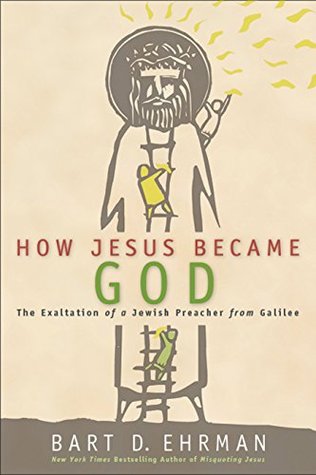More on this book
Community
Kindle Notes & Highlights
Read between
August 25 - September 14, 2024
Christians were calling Jesus God directly on the heels of the Romans calling the emperor God. Could this be a historical accident? How could it be an accident? These were not simply parallel developments. This was a competition.
Moreover, there was some sense of continuity—not only discontinuity—between the divine and human realms. And there was a kind of spectrum of divinity: the Angel of the Lord, already in scripture, could be both an angel and God. Angels were divine, and could be worshiped, but they could also come in human guise. Humans could become angels. Humans could be called the Son of God or even God. This did not mean that they were the One God who created heaven and earth; but it did mean that they could share some of the authority, status, and power of that One God.
No, what made Jesus different from all the others teaching a similar message was the claim that he had been raised from the dead. Belief in Jesus’s resurrection changed absolutely everything.
one thing we can know with relative certainty is that the belief that Jesus was raised from the dead is the key to understanding why Christians eventually began to think of him as God.
Alex Matzkeit liked this
This lower-class peasant from Galilee who had gotten on the wrong side of the law and had been crucified was in fact the most powerful being in the universe.
As we have seen, Christian Gnostics maintained that salvation came not through faith in the death and resurrection of Jesus, but through proper “knowledge” of the secrets Christ revealed to his followers.
The Christ of Nicea is obviously a far cry from the historical Jesus of Nazareth, an itinerant apocalyptic preacher in the backwaters of rural Galilee who offended the authorities and was unceremoniously crucified for crimes against the state. Whatever he may have been in real life, Jesus had now become fully God.


